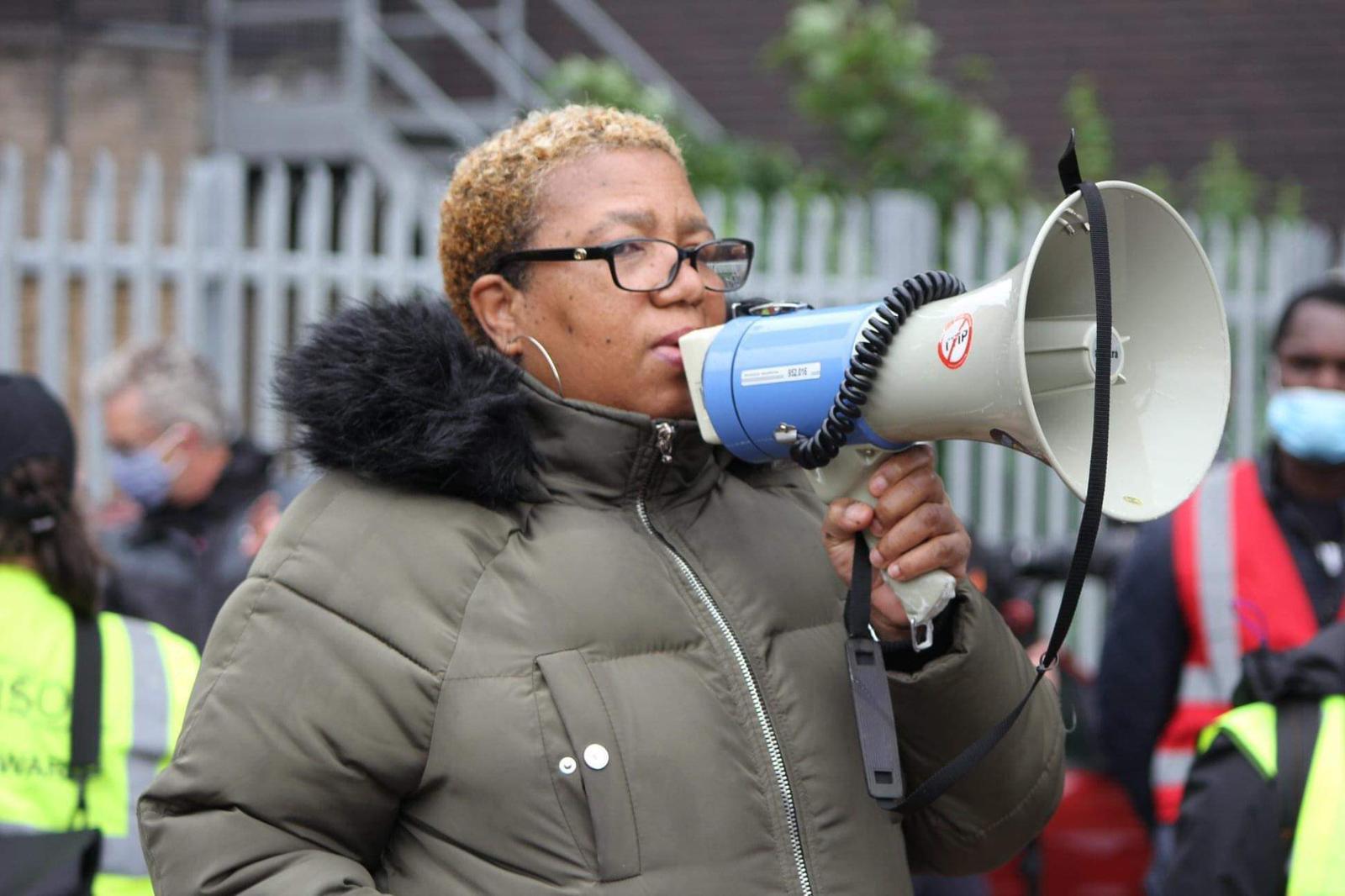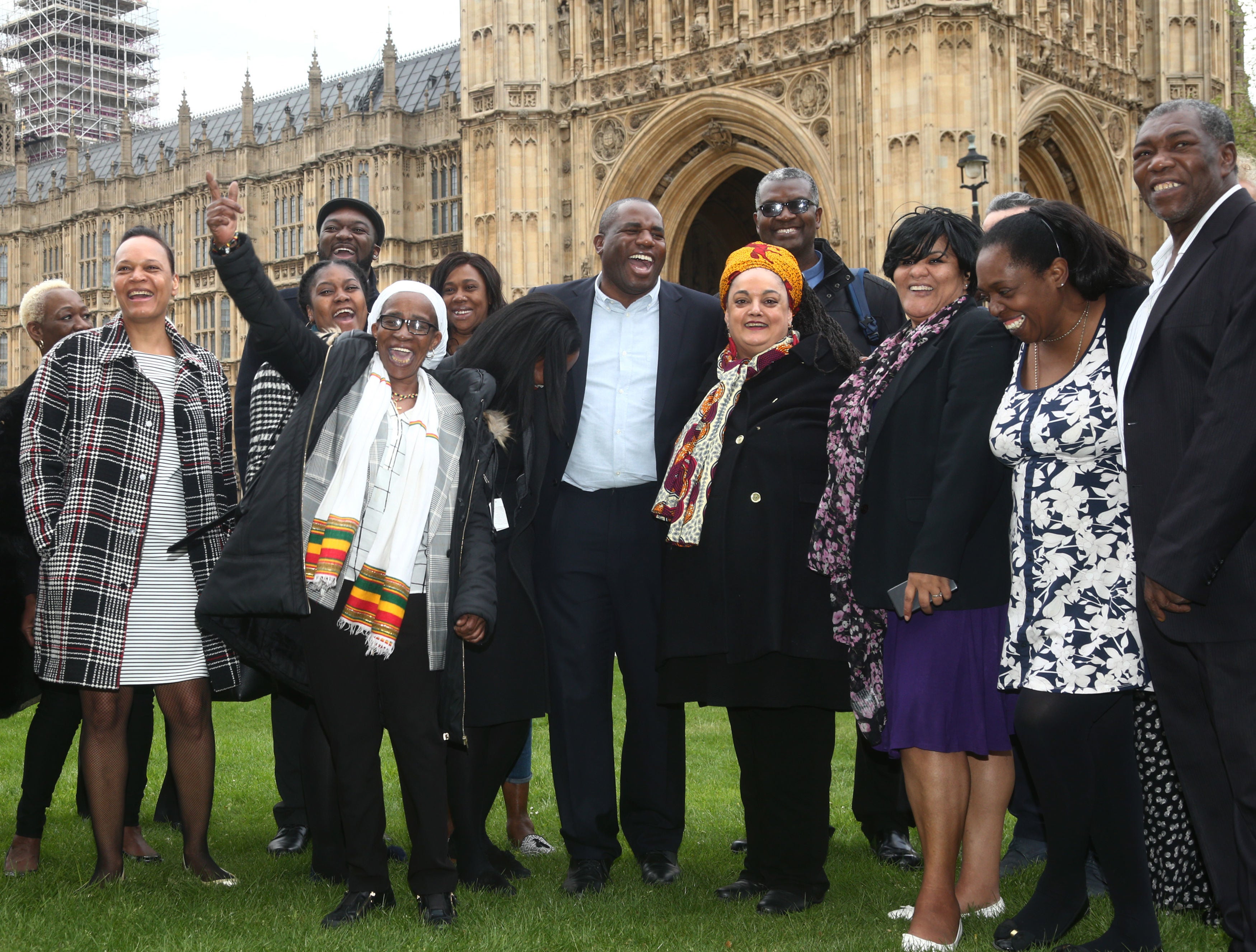
“Bittersweet” is how a national monument paying tribute to the “courage and resilience” of the Windrush generation has been described by campaigners on the eve of its unveiling at Waterloo Station – and some have chosen to boycott the event altogether, The Independent can reveal.
The statue – of a man, woman and child in their Sunday best standing on top of suitcases – will be revealed at one of London’s biggest train stations on Wednesday to mark Windrush Day.
It was designed by the Jamaican artist and sculptor Basil Watson, who said he was “truly honoured” to have been chosen when the government shared details of the monument last October.
The government, which has provided £1 million in funding for the project, said it will “create a permanent place of reflection and inspiration and be a visible statement of our shared history and heritage”.
Patrick Vernon OBE said while the tribute is welcomed, it is “jarring” to some survivors of the scandal while the compensation scheme is not meeting their needs more than four years after the Windrush scandal was brought to light.
“Any recognition for the Windrush generation is always welcomed and I hope there’ll be others. But there are issues, in that Windrush victims and survivors of the scandal have concerns because the monument has been funded by the government and the compensation scheme is not meeting their needs,” the campaigner said.

Mr Vernon doubled down on ongoing calls for the Windrush Compensation Scheme to be removed from the government’s control. “The scheme itself needs to be removed from the Home Office for it to work properly and fairly,” he said.
“If the scandal and compensation scheme can be resolved, then we could have a proper Windrush Day where all parts of the Windrush community celebrate the occasion. Until then, it will continue to be bittersweet as the scandal is still present and the needs of the survivors have not been met.”
The heavily-criticised scheme has been plagued by delays and “unreasonable requests for evidence”. Home Office figures show that less than half of the people who have applied for compensation have received a final decision.
Prominent Windrush survivor Glenda Caesar told The Independent she wasn’t invited to the unveiling and nor were other people affected by the scandal who she knows.
“I knew nothing about the unveiling and wasn’t asked to attend,” she said. “I can understand that it represents the people who came in via that station in 1948 but this does nothing to help the people, like myself, who suffered under this scandal and are labelled as the Windrush generation.
“Even though the Home Office has apologised to us, we still feel affected and aren’t as trusting. This is of no relevance and I wouldn’t have even take time to go to Waterloo and see the unveiling.”

Another person affected by the scandal and awaiting compensation, who asked not to be named, told The Independent: “I must say I find it difficult to celebrate the monument when so many Windrush victims are still living in misery waiting for compensation.”
For teacher Samuel Nelson, who moved from Jamaica to the UK to join his mother in the 1970s, the lack of awareness of the monument among parts of the Windrush community and absence of widespread discourse with its non-famous members is disappointing.
The government launched an online public consultation in June 2021 as four artists, all of Caribbean descent, proposed ideas for the monument, but Mr Nelson pointed out that neither he, nor his contemporaries, knew anything about it.
“Where was the campaign to inform and involve people about it, the rigorous consultation?,” Mr Nelson, who also helps Windrush claimants get compensation through the African Caribbean Leadership Company, said to The Independent.
“Many people in my networks are furious that this monument will be pushed down our throats by the very government that has been so hostile to us.”
Jacqueline McKenzie, partner and head of immigration at Leigh Day, told The Independent that her firm, which represents more than 300 people affected by the scandal, has decided not to participate in the Waterloo statue unveiling “whilst justice is being denied to thousands of victims”.
Instead, the solicitor and her team will be taking 40 people affected by the scandal out for the day to lay a wreath at the Black war memorial in Windrush Square, visit the Tilbury Docks, enjoy a Caribbean lunch and afternoon tea with Croydon’s mayor.
“We say the scandal is not abated because so few people are obtaining redress,” Mrs McKenzie said. “Less than 1000 people have had an offer of compensation and we know from our work that many of these are refusing their offers.
“The process is slow so that many of the elderly cohort are dying before getting redress and the case working is particularly poor with claimants being asked repeatedly for information which we have found that the Home Office has.”

The scandal erupted in 2018 when British citizens, mostly from the Caribbean and disproportionately from Jamaica, were wrongly detained, deported or threatened with deportation, despite having the right to live in Britain.
Many lost homes and jobs, and were denied access to healthcare and benefits. Since then, the Home Office has provided thousands of documents to more than 11,500 people confirming their immigration status or citizenship.
Human rights charity Praxis said it is concerned that, far from righting the wrongs caused to thousands, or transforming itself into a more compassionate institution, the Home Office is instead doubling down on a hostile and punitive policy agenda that continues to destroy lives.
CEO Sally Daghlian OBE said: “Despite the Home Secretary’s claims that her department has become more compassionate, the Home Office’s latest policies demonstrate conclusively that this is not the case, as they seek to criminalise people for seeking safety in the UK and trade cash for humans with Rwanda.”
Wendy Williams, author of the Windrush Lessons Learned Review, said she was “disappointed” with the progress made by the Home Office since she set it 30 recommendations for improvement two years ago.
The Home Office is at risk of another Windrush-style scandal if it does not bring about the “cultural changes required”, she concluded in March.
The Windrush scandal was caused by decades of racist immigration law that was designed to reduce the number of Black people living in the UK, a bombshell leaked Home Office report revealed last month.
Windrush Day was introduced in June 2018 on the 70th anniversary of the Windrush migration. Though it is not a bank holiday, it is observed across the country.
Chair of the Windrush Commemoration Committee Baroness Floella Benjamin DBE DL said: “The National Windrush Monument will act as a symbolic link to our past and a permanent reminder of our shared history and heritage for generations to come.”
The Home Office has been approached for comment.







